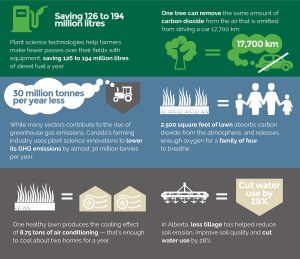Trade in the Trump era
FROM THE CEO’S DESK

WE MIGHT LIKE to think we dodged a bullet when Prime Minister Justin Trudeau solidified Canada’s good standing with the U.S. during his first official meeting with President Donald Trump; but the Trump administration’s performance thus far suggests that we should not take such assurances at face value.
By all accounts, President Trump has a preference for unilateral trade agreements. The protectionist strategy he intends to follow to ‘Make America Great Again’ has resonated with Americans looking for work but has caused alarm for those involved in international trade. President Trump’s political decisions, and even his social media presence, are already having a significant impact within the business world — from the automotive sector to retail.
While President Trump might have this personal bias towards multilateral trade, there are some sectors where the case can be made that these trade agreements are economically beneficial. Participants and speakers at the 2017 USDA Agricultural Outlook Forum, held in Washington at the end of February, took pains to emphasize how important trade and positive trading relationships were for American agriculture. Ending stocks of corn, soybeans, and wheat are the highest in decades and strong export markets would provide support for what appears to be, at this stage, a flat market price forecast.
One significant player in global trade is China. With their growing middle-class, luxury goods and more diverse agricultural imports are on the rise. However, their export of cheaper manufactured goods continues to rankle those who would rather see a return of a strong manufacturing sector in the U.S. President Trump has declared China a ‘currency manipulator’ and wants to increase tariffs on goods exported from China to the U.S. This could have implications for Canada. Prime Minister Trudeau is pursuing a bilateral trade deal with China, but this will take some time to negotiate and ratify.
The new U.S. president has also strained trade relations with Mexico with his immigration policies, plans to build a border wall, and threats to renegotiate NAFTA. Last year, nearly all of Mexico’s corn imports were from the U.S. (more than 12 million tonnes, an amount that equalled more than $2 billion dollars in 2015). In protest, one Mexican lawmaker is proposing they import their corn from South America instead. We will have to keep a close eye on what happens with this relationship.
The fate of the Trans-Pacific Partnership (TPP) trade agreement is unknown now that Trump has withdrawn U.S. involvement. Some participants say the agreement isn’t worthwhile without the Americans. Canada still believes in multilateral trade agreements. Trudeau recently lauded the benefits of the Comprehensive Economic and Trade Agreement (CETA) between Canada and the European Union as it was approved by the European Parliament.
Whatever your personal feelings are about President Trump, it’s important to realize the significant influence he will have on trade policies over the next four years. Even small tweaks to agreements could have a major impact here in Canada. Trade is like an octopus with tentacles going every which way — if you’re not paying close enough attention, you might not see everywhere it is reaching. That’s why no matter how cozy our relationship with the U.S. may be, we need to step up and ensure that we aren’t missing out on opportunities elsewhere in the world. •











